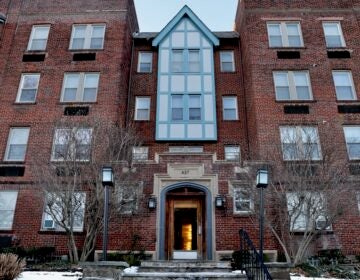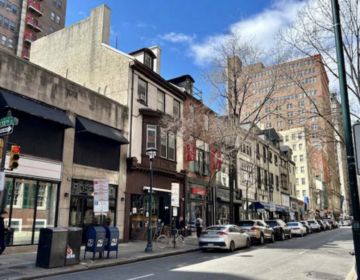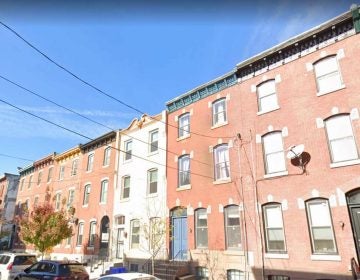Historical Commission to decide whether to protect Blue Horizon
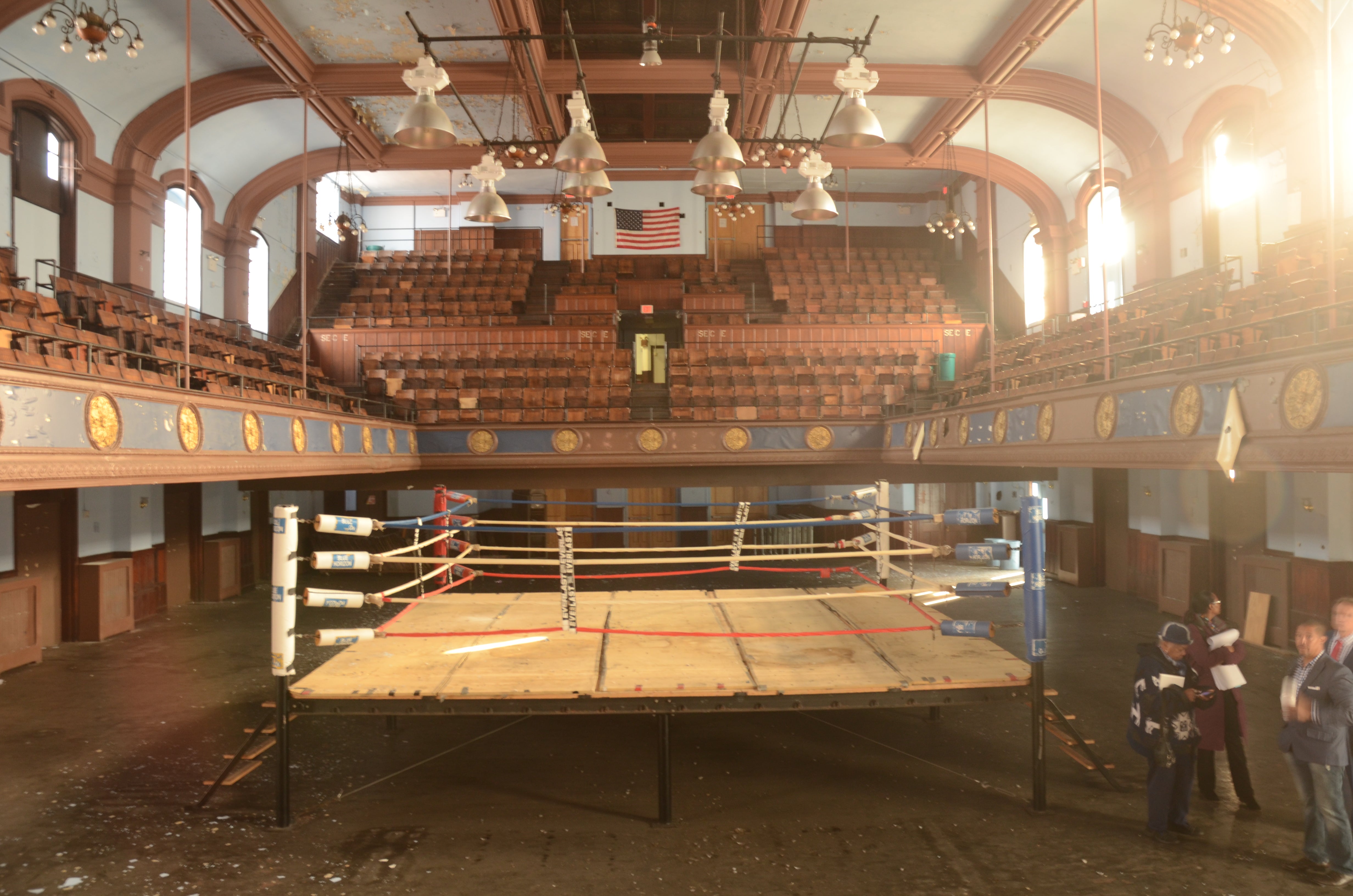
For the past five years, a small group of developers has been trying to gather the money to turn North Broad Street’s Blue Horizon—formerly a Moose Lodge and later, more famously, a boxing venue—into a luxury hotel.
The proposal, which also includes restaurants and a jazz club, was approved by both the City Planning Commission and City Council back in 2012, almost three years ago. Since then, the building has sat empty while Mosaic Development Partners and Orens Brothers Real Estate have worked on fundraising. Meanwhile, the Preservation Alliance is making efforts to protect the building, which was built in the 1870s, in the event that the developers fail to raise the money they need to build the hotel.
On Thursday, a committee of the Philadelphia Historical Commission met to try to sort through the issues, which are complicated by a number of factors.
For one thing, the developers have already pulled a permit to demolish the building. So as long as they can raise the money to complete the project, the potential historical designation of the property could be a moot point.
The owners have entered into an agreement with the Preservation Alliance that prevents any major demolition work from being done until they can prove they have the money they need to complete the hotel. In exchange, the Alliance has agreed that it won’t appeal the demolition permit, which was approved back in 2013 but wasn’t actually paid for and issued until earlier this month.
In effect, the Preservation Alliance is seeking to prevent the owners from tearing down the building and selling off the property. The group has nominated the building for historic protection while acknowledging that that designation couldn’t prevent the current hotel proposal from going forward.
On Thursday, the Commission’s committee on historic designation considered nominations for both the interior and exterior of the building. It voted to split the difference, recommending that the exterior be protected but that the interior be left alone. The full Commission will make the final designation decision next month.
The owners, meanwhile, say a historical designation could complicate their fundraising efforts. If the Historical Commission decides that the building is worthy of protection, they worry, potential funders could be scared off by what they see as the extra cost of maintaining the building’s historic features.
So even though the historic protection wouldn’t affect their legal ability to tear down the building under the existing permit, Mosaic and Orens are opposing the designation. By way of argument, they say that the building itself is of only passing historic value—“quaint but nonfunctional,” as they put it in a statement to Hidden City last year.
Moreover, the owners say they have taken on significant debt in the property since purchasing it in the 1990s, and any decision that jeopardizes the project could lead to personal financial ruin for them. Why can’t the Commission just wait and allow the project to come to fruition—or fail—before deciding whether to move forward with a historic designation?
Dorothy Hamill, an attorney representing the developers, a Minority-owned Business Enterprise (MBE), said that the area surrounding the Blue Horizon has changed since the 1870s. The significance of the property to the surrounding community isn’t a function of its design, materials, or architectural features. There was no crowd crying out for the Blue Horizon to be preserved, she noted. To designate the property historic would be to “impose on a community what they should save and how they should do it.”
Ben Leech of the Preservation Alliance argued that the exterior of the building is architecturally significant, and the interior auditorium is “an extraordinary public space.” (Read the full nominations for the interior and exterior of the building below.)
After a two-hour hearing, the committee agreed that the exterior should be protected, but said the interior should not. Committee member Richardson Dilworth, grandson of the former mayor, said that the interior of the building couldn’t really be considered a public space. Since it was always a space that people had to pay to get into, he said, it had to be considered a “tolled good.” The Historical Commission can’t go around designating the interior of every building in the city that has some historical significance, he said.
The full Commission will make a final determination on the designation on March 13. In the meantime, Leslie Smallwood-Lewis of Mosaic said the group is “cautiously optimistic” it can get the money it needs to build the hotel. She didn’t want to guess how quickly that might happen.
Full video(s)! of hearing below
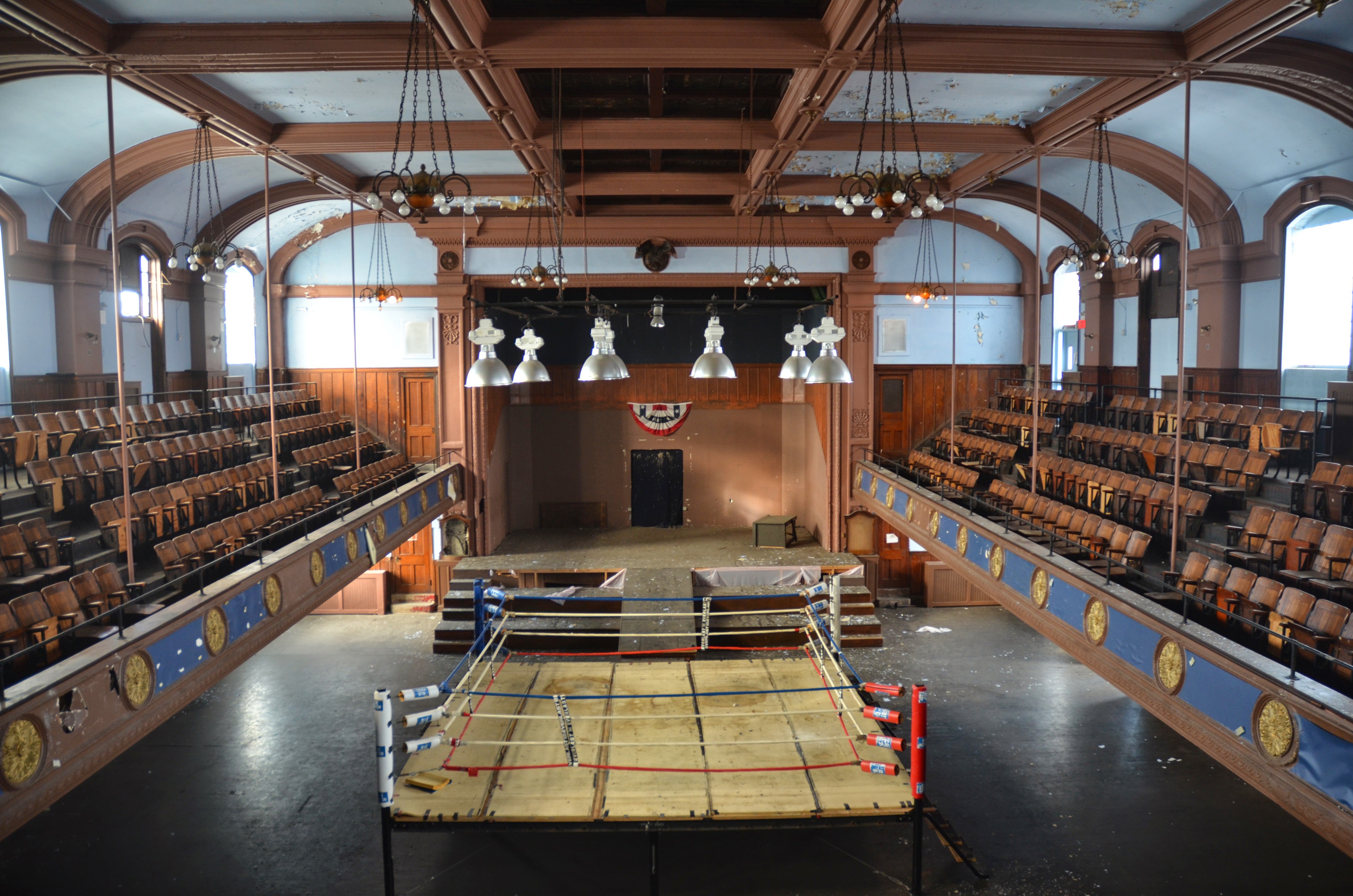
WHYY is your source for fact-based, in-depth journalism and information. As a nonprofit organization, we rely on financial support from readers like you. Please give today.




